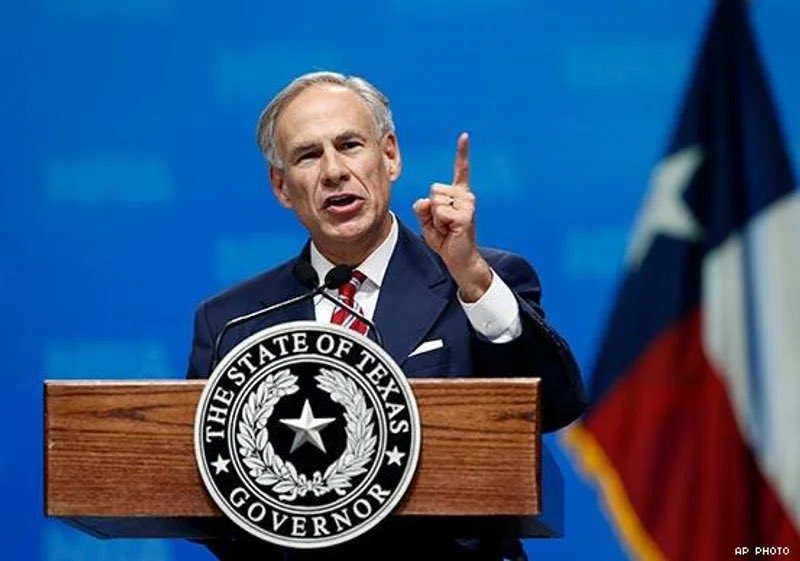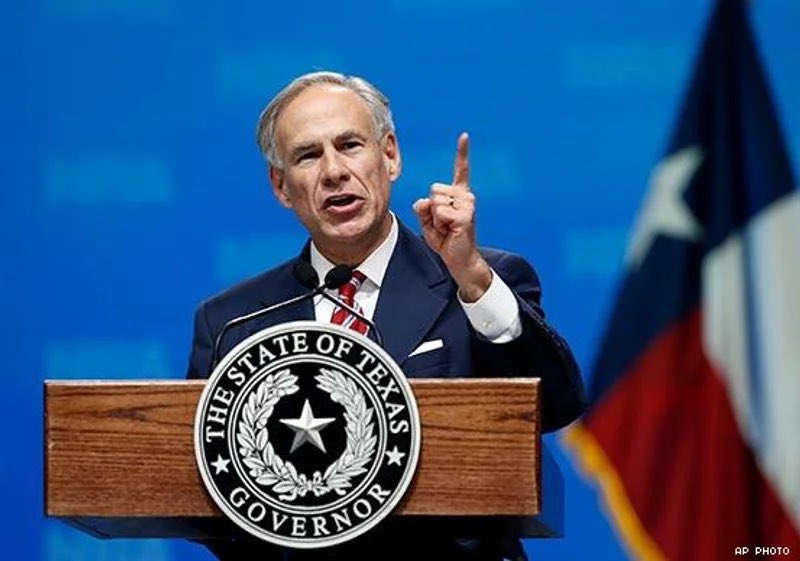Texas Governor Abbott’s Shocking Land Ban: No Foreign Buyers!
Texas Governor Greg Abbott Bans Land Purchases by Foreign Nations
In a significant move aimed at national security and economic stability, Texas Governor Greg Abbott has enacted a ban on land purchases by certain foreign nations. This decision, announced on June 27, 2025, prohibits entities from China, Russia, Iran, and North Korea from acquiring land within the state of Texas. The announcement was made via social media, generating considerable attention and discussion about the implications and motivations behind such a bold policy.
Background of the Ban
The decision to prohibit foreign land purchases comes amid growing concerns over national security and foreign influence in the United States. In recent years, there has been increasing scrutiny of foreign investments in American real estate, particularly from nations that pose potential security threats. This ban reflects a broader trend among U.S. states and federal government agencies to safeguard critical resources and infrastructure from foreign entities.
Key Reasons for the Ban
1. National Security Concerns
The primary motivation for Governor Abbott’s ban is to protect Texas’s national security. With rising tensions between the United States and nations like China, Russia, Iran, and North Korea, there is a heightened awareness of the risks associated with foreign ownership of land. Concerns include espionage, the potential establishment of military bases, and the influence these countries could exert over local economies and politics.
- YOU MAY ALSO LIKE TO WATCH THIS TRENDING STORY ON YOUTUBE. Waverly Hills Hospital's Horror Story: The Most Haunted Room 502
2. Economic Stability
Another significant factor is the desire to maintain economic stability within the state. By restricting foreign ownership, Texas aims to ensure that land remains in the hands of American citizens and businesses. This is particularly important for agricultural and industrial sectors that are vital to the state’s economy. The governor’s office argues that local ownership fosters a more robust economic environment and helps protect jobs for Texans.
3. Public Sentiment
Public sentiment has increasingly favored policies that prioritize national interests over foreign investments. Many Texans support measures that limit foreign influence in their communities, viewing such actions as a way to preserve local culture and autonomy. Governor Abbott’s ban resonates with constituents who are concerned about the implications of foreign ownership on their daily lives.
Implications of the Ban
1. Impact on Foreign Relations
This ban may strain relations with the countries affected, particularly China and Russia, which have significant economic ties to the United States. Such policies could lead to retaliatory measures or increased tensions in diplomatic relations. Critics argue that a more isolated approach may not be the best solution for addressing geopolitical issues, suggesting that engagement and dialogue would be more beneficial.
2. Economic Consequences
While the ban may protect local interests, it could also deter potential investors from these countries who might otherwise contribute to the Texas economy. The implications for job creation and economic growth will need to be closely monitored in the coming months. Furthermore, businesses that rely on international partnerships may face challenges if foreign investments are restricted.
3. Legal Considerations
The legality of such a ban may also come into question. There are existing laws and regulations governing foreign investments in the United States, and this ban could face legal challenges from affected parties. Legal experts will need to assess whether the state has the authority to impose such restrictions without infringing on constitutional rights or international trade agreements.
Future of Foreign Investments in Texas
Governor Abbott’s ban sets a precedent that may influence other states to adopt similar measures. As concerns about foreign ownership grow, it is likely that more states will consider legislation to restrict land purchases by foreign entities. This could lead to a patchwork of regulations across the country, complicating the landscape for international investors.
Furthermore, the Texas government may need to develop a more comprehensive strategy to evaluate foreign investments on a case-by-case basis rather than implementing blanket bans. Such an approach could allow for beneficial investments while still safeguarding national security interests.
Conclusion
Texas Governor Greg Abbott’s ban on land purchases by China, Russia, Iran, and North Korea marks a pivotal moment in the ongoing debate over foreign investments in the United States. With national security and economic stability at the forefront of this decision, the implications for Texas, as well as its foreign relations, are profound. As the landscape of foreign investments continues to evolve, it will be crucial for state and federal governments to strike a balance between protecting national interests and fostering economic growth.
This move reflects a growing trend among states to take proactive measures in safeguarding their resources and infrastructure. As Texas navigates this new policy, the outcomes will likely serve as a case study for other states contemplating similar actions. It remains to be seen how this ban will affect the state’s economy, its relations with foreign nations, and the overall sentiment toward foreign investment in the U.S.

Alert: Texas Governor Greg Abbott has just banned China, Russia, Iran and North Korea from buying any land in the state. No foreign land purchases again in Texas!! pic.twitter.com/peyX4NzGGD
— US Homeland Security news (@defense_civil25) June 27, 2025
Alert: Texas Governor Greg Abbott has just banned China, Russia, Iran and North Korea from buying any land in the state.
In a striking move that’s sure to ripple through the political landscape, Texas Governor Greg Abbott has officially declared that China, Russia, Iran, and North Korea are banned from purchasing any land within the state. This bold decision comes at a time when concerns about national security and foreign influence are at an all-time high. With this ban, Abbott aims to protect Texas resources and maintain the state’s sovereignty against potential foreign adversaries. The phrase “No foreign land purchases again in Texas!!” has been echoed across various media platforms, stirring both support and debate among Texans and political analysts alike.
No foreign land purchases again in Texas!!
So, what does this ban really mean for Texas? First off, it’s important to understand the implications of foreign ownership of land, especially in a state that prides itself on its independence and economic strength. The ban signifies a protective measure against foreign entities that could potentially exploit Texas’s resources or influence local politics. This move aligns with a growing trend across the U.S. where state leaders are becoming increasingly wary of foreign investments in critical infrastructure and agricultural land.
The Context Behind the Ban
To fully appreciate the significance of Governor Abbott’s ban, we need to take a look at the broader context. In recent years, there has been a surge in foreign investments in American farmland and real estate, which has raised eyebrows among national security experts. Particularly, the involvement of nations like China and Russia has sparked fears regarding food security, strategic assets, and overall national interest.
In the past, various states have taken steps to limit foreign ownership of agricultural land, with some states already implementing similar bans. For instance, a report from the NBC News highlighted how lawmakers across the U.S. are grappling with the implications of foreign land purchases and are looking for ways to safeguard local interests. Abbott’s action places Texas at the forefront of this movement.
What This Means for Investors
For investors, this ban could lead to a paradigm shift. Those looking to invest in Texas real estate or agriculture will now have to navigate a more complex landscape. The ban could deter some foreign investors, while domestic investors might find new opportunities in a less competitive market. It’s an interesting time for real estate in Texas, and understanding the local laws will be crucial for anyone looking to invest.
Public Reaction
Public opinion on this ban varies significantly. Many Texans support the governor’s decision, viewing it as a necessary step to protect the state’s resources and sovereignty. They believe that it’s time to put Texas residents first and ensure that local land remains in the hands of those who will invest in the community.
On the flip side, critics argue that this ban could have unintended consequences, potentially stifling legitimate foreign investment that might benefit the economy. The balance between security and economic growth is delicate, and finding the right middle ground will be essential as this debate continues.
The Economic Impact
Economically, Texas is a powerhouse, and maintaining that status is vital. With this ban, the state may see a shift in investment dynamics. Local farmers and businesses could benefit from reduced competition from foreign entities, potentially leading to more stable prices and a stronger local economy. However, it’s crucial to monitor how these changes will impact agricultural exports and overall economic relations with foreign nations.
Future Implications
The implications of this ban stretch beyond Texas borders. As more states consider similar measures, it could lead to a patchwork of laws across the country, making it challenging for foreign investors to navigate the landscape. This could result in a significant reduction in foreign investment in American land, but it might also encourage more domestic investment and innovation.
Moreover, this could spark further discussions around national security and economic independence. As the U.S. continues to face geopolitical challenges, especially from nations like China and Russia, Abbott’s ban could be seen as a proactive approach to safeguard American interests.
Conclusion
Governor Abbott’s ban on foreign land purchases in Texas is more than just a policy change; it’s a reflection of growing concerns regarding national security and economic sovereignty. As Texas moves forward, it will be interesting to see how this decision shapes the landscape of real estate, agriculture, and foreign investment in the state. The conversation surrounding this ban is just beginning, and it will be essential for residents and investors alike to stay informed and engaged as the situation evolves.

